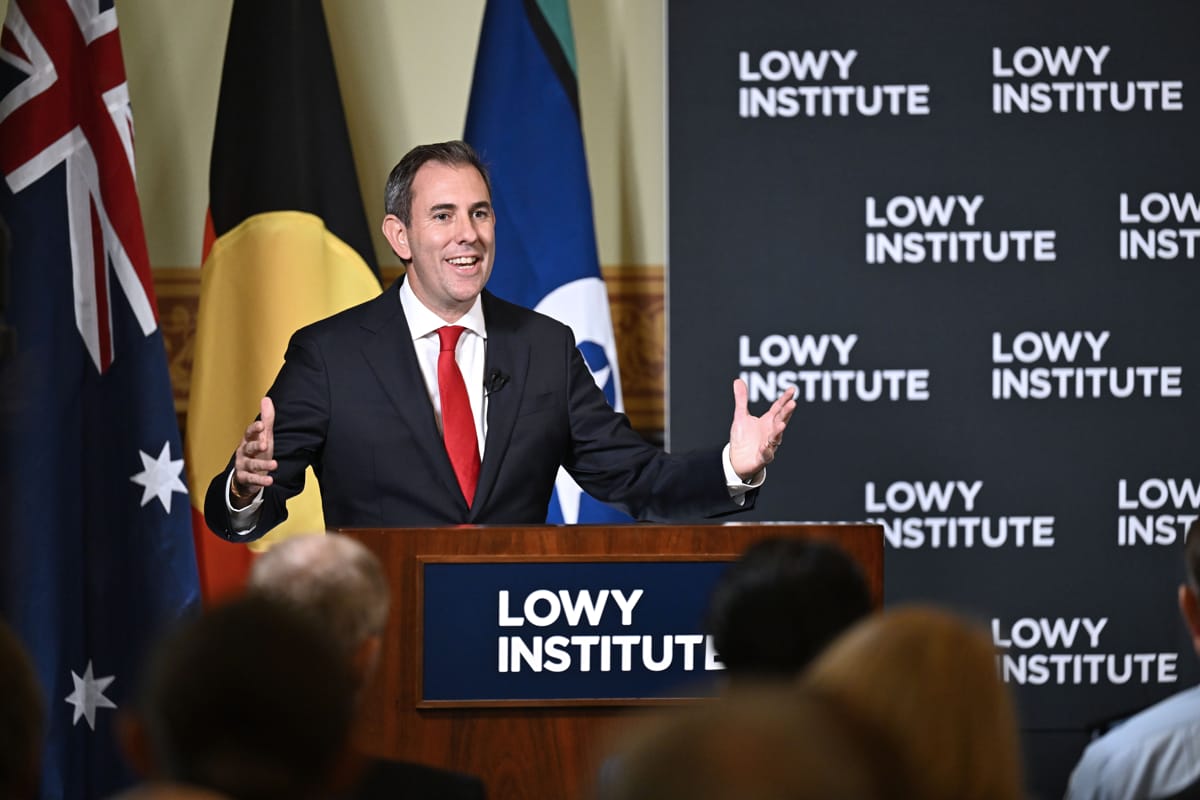Treasurer Jim Chalmers spoke at the Lowy Institute this month about the need to align Australia’s economic and security interests. Otherwise, he warned, Australia may fail to adapt to an international economic and technological environment permeated by geopolitics.
Chalmers remarks echoed – and indeed referenced – a speech last year by US National Security Adviser Jake Sullivan on American economic leadership. Chalmers also followed a chorus of voices calling for coordinated institutional structures between government agencies, senior appointments, and a national interest strategy to unify Australia’s policy agenda. A landmark public service review in 2019 similarly proposed guidance for central coordination within the prime minister’s department.
Strategy and structure are important parts of the equation. But to adapt to a world of complexity and risk, policymaking cultures are key, i.e., the differing organisational values, expectations and practices that affect how policymakers understand each other and work together.
These are not new challenges. Successive governments have been alive to the need develop more sophisticated ways to pursue “security” and “prosperity” as two sides of the same coin.
No government agency has a monopoly on good ideas needed.
This mindset was central to strengthening universities against the risk of espionage, buttressing the foreign investment framework, developing legislation to enhance federal oversight of state and territory ties with foreign governments, and in efforts to protect critical infrastructure.
The process came with rough patches, leaving some policymakers unsatisfied, and had to be smoothed over. For example, in the aftermath of the 5G decision, where Australia led the world in excluding Chinese vendors from its networks, the Critical Technologies Policy Coordination Office was established to foster a holistic technology policy.
Based on the Treasurer’s remarks, challenges remain.

The cultural task ahead is building Australian policymaking practices that can manage, if not embrace, healthy and productive contestation. Public service officers at all levels, in all agencies, have a role in this.
No government agency has a monopoly on good ideas needed to chart a way forward on de‑carbonisation, supply chain diversification, or deterring conflict in the Indo-Pacific. Moreover, government needs to partner with private industry, academia and civil society to develop solutions and deliver.
Put another way, fixed mindsets, talking at cross purposes and with different languages, departmental silos and closed doors are impediments to the problem-solving that Australia needs.
The public service needs more talent from industry, research and civil society. Not being institutionalised within the bureaucracy creates opportunities for people to positively disrupt the way things work.
Delivering new initiatives such as a Future Made in Australia requires an evolution in policy thinking. A logic of economic efficiency may not always accord with the steps needed to manage strategic risk and opportunity in areas such as clean energy and securing Australian technology advantages. In another area, realising the potential of AUKUS for Australian science, technology, innovation, and manufacturing requires industry, education and economic portfolios as much as defence.
For complex, cross-cutting issues, decision-makers should expect that the final advice is not overly skewed because of where the policy function resides or who holds the pen on the ministerial brief. The ideal of policy advice it that it should be the result of a considered process, respectful debate, and the weighing of evidence. Sometimes this means getting creative and leaving old orthodoxies behind.
Driving the cultural shift needed to align security and economics begins with organisational leaders incentivising deeper collaboration across government for those areas increasingly within each other’s orbit. Public servants that move between portfolios – e.g., from the national security community to the Treasury – should viewed as more competitive for key policy roles. It is time to do away with terms such as “laterals” used to describe people arriving from other agencies, which create a counterproductive “us and them” divide.
Strengthening representation and inclusion of people of different backgrounds and views in the policy process is essential. Fortunately, attention is now being given to improve promotion prospects for culturally and linguistically diverse staff, but there remains more to do.
The public service needs more talent from industry, research and civil society. Not being institutionalised within the bureaucracy creates opportunities for people to positively disrupt the way things work, while bringing much-needed expertise and networks that help get things done.
While on the job, staff should be supported to study outside their usual field and participate in initiatives that challenge their thinking, such as “policy fit for the future”. The aim is not for an economist to be a security expert and vice versa, but to help people build a more common policy operating picture and language.
Technology is not a panacea but new AI-enabled tools such as multi-lens analysis could help agencies better understand, and design solutions for, complex problems.
While the cabinet table is ultimately a forcing function to bring together different interests and perspectives, tough policy decisions require many hours, days or weeks of contemplation. Incentivising a more collaborative culture across the public service will make the difference for Australia in integrating security and economic policy in a more contested world.

